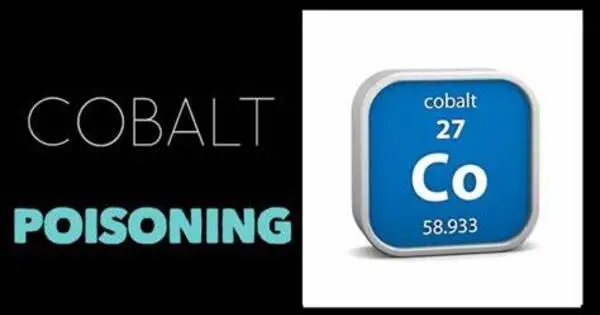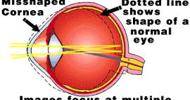Cobalt poisoning occurs when there is an excess of cobalt in the body, resulting in negative health repercussions. It is a form of intoxication produced by high levels of cobalt in the body. Cobalt, as a component of vitamin B12, is a necessary mineral for animal health in trace amounts. Cobalt is a naturally occurring element that is an essential component of vitamin B12, which is required for red blood cell synthesis and optimal nervous system function. A cobalt deficiency, which is extremely unusual, can also be fatal, resulting in pernicious anemia.
Cobalt metal dust exposure is most common in the production of tungsten carbide. Wear and tear on certain metal-on-metal hip prosthesis is another reason. Excessive cobalt exposure, particularly in elemental or inorganic forms, can be hazardous.
Cobalt metal with tungsten carbide is classified as “probably carcinogenic to humans” (IARC Group 2A Agent), whereas cobalt metal without tungsten carbide is classified as “possibly carcinogenic to humans” (IARC Group 2B Agent).
There are several sources of cobalt exposure:
- Occupational Exposure: People who work in industries such as mining, metallurgy, and the production of certain alloys may be at risk of cobalt exposure.
- Implants and Prosthetic Devices: Some medical devices, such as hip implants and dental prosthetics, contain cobalt. Prolonged exposure to cobalt from these devices can lead to toxicity.
- Consumption of Contaminated Water or Food: In certain regions, water or food may be contaminated with elevated levels of cobalt, leading to ingestion and accumulation in the body.
Symptoms of cobalt poisoning may include:
- Cardiomyopathy: Cobalt toxicity can affect the heart, leading to a condition known as cardiomyopathy.
- Thyroid Issues: Excessive cobalt intake may interfere with thyroid function.
- Neurological Symptoms: High levels of cobalt can lead to nerve damage, resulting in symptoms such as numbness, tingling, and problems with coordination.
- Hypothyroidism: Cobalt can interfere with the absorption of iodine, leading to hypothyroidism.
- Skin Lesions: Prolonged exposure to cobalt may cause skin reactions such as redness and rashes.
If you suspect cobalt poisoning, seek medical attention right away. Blood and urine tests to assess cobalt levels are frequently used in the diagnosis. Removal of the source of exposure and supportive care to manage symptoms may be included in treatment.
Preventive measures include workplace safety policies in cobalt-using companies, regular contamination monitoring of water and food, and careful evaluation of the materials used in medical implants. If you are concerned about potential cobalt exposure, seek advice and examination from a healthcare expert.
















